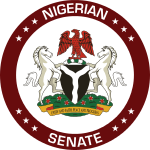The Senate on Tuesday took a bold step to modernize Nigeria’s public investment framework by passing for second reading a bill to repeal the Ministry of Finance Incorporated (MOFI) Act of 1959 and re-enact it as the Ministry of Finance Incorporated Act 2025.
Sponsored by Senator Mohammed Sani (APC–Niger), the bill seeks to transform MOFI from a passive custodian of government assets into a strategic, transparent, and professionally managed investment institution, capable of driving national wealth creation and economic diversification.
“The MOFI Act of 1959 is no longer fit for purpose. It suffers from an outdated mandate, weak governance, limited investment authority, and poor transparency. This bill will empower MOFI to actively manage assets, invest in domestic and global markets, and leverage innovative financial instruments,” Sani told lawmakers during plenary.
Under the new framework, MOFI will have the authority to enter public-private partnerships, issue bonds, utilize securitization, and manage special purpose vehicles, while ensuring all investments comply with environmental, social, and governance (ESG) standards.
Sani explained that the bill draws inspiration from global models such as Singapore’s Temasek Holdings and Norway’s Sovereign Wealth Fund, renowned for transparency, ethical governance, and robust parliamentary oversight.
“The reforms will help Nigeria transition from volatile, resource-dependent revenues to a diversified, asset-powered economy,” Sani said. “This is a landmark legislation that strengthens governance, enhances accountability, and maximizes national assets for sustainable wealth creation.”
Other senators praised the initiative as long overdue. Sen. Abdullahi Yahaya (APC–Kebbi) suggested merging the MOFI Act with the Sovereign Wealth Fund Act to create a single operational law overseeing federal investments, while Sen. Adetukunbo Abiru (APC–Lagos) called for a comprehensive database of all government assets.
Sen. Abdul Ningi (PDP–Bauchi) described the bill as a historic step, noting that no modifications had been made to the 66-year-old law until now.
Following the second reading, Senate President Godswill Akpabio referred the bill to the Senate Committee on Finance for further legislative input, with a report expected back to plenary in four weeks.
The passage of this bill signals the Federal Legislature’s resolve to modernize Nigeria’s public investment architecture, align it with international best practices, and unlock the full potential of government assets.

